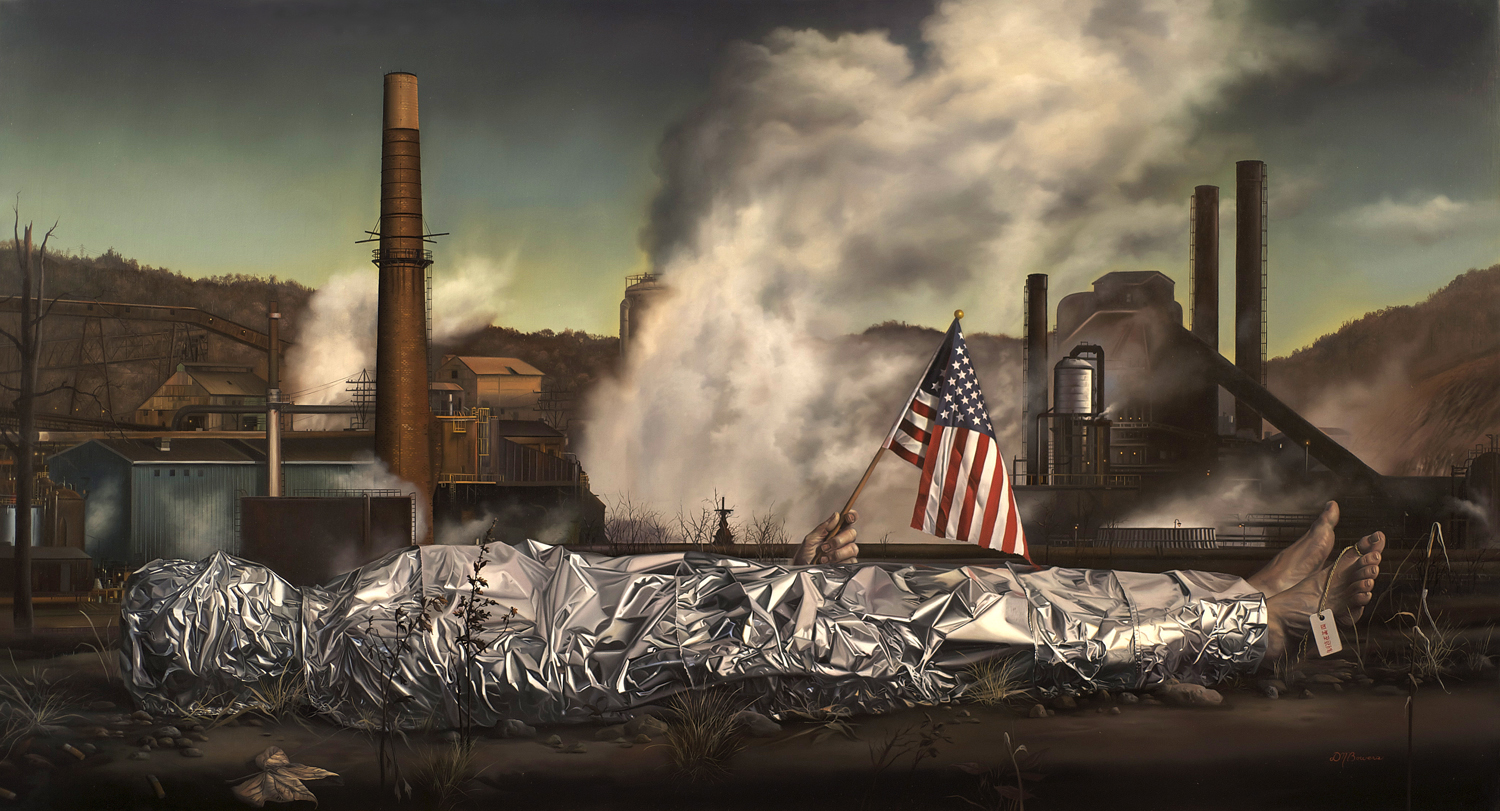Because he gave up life in town
To graze the old undulant farm
They called him a provincial clown
Who did not get all up in arms.
They said, rashly, he did not care
About the evil ways of men.
But seeing evil everywhere
He’d made it a point not to sin
(As much as he could); so he went
Back out into the countryside
And all his energy was spent
On living simply with his bride.
Their arms were plowshares, pruning hooks.
(Though there was a gun ’hind the door.)
He saw the Chinese tractor took
The job away from John next-door.
The trinket’s cheap, but it’s bloody,
Splashed by slaves on gulag lines!
One is voting with one’s money:
To buy foul things is to make binds.
His mode of life: To hurt no one—
Was bold and brash and hard to do;
And doing it, one could be dumb,
Not preaching, but, practicing too.
The couple commenced to work hard
And be subversive in their way:
To plant potatoes in their yard
And turn the salesman back away.
Lawns are somewhat a waste of space.
Land is a resource one can use.
The less one buys the Chinese race
Is that much less hurt and abused.
So every time they went shopping—
Which was a rare occurrence—it
Was a good chance to go voting
With the pennies in their pocket.
Reid McGrath is a poet living in the Hudson Valley of New York.
Featured Image: “Made in America” by David Bowers (b. 1956)




I really like this poem, the story.
A good poem. Actually, planting potatoes in their yard may not be subversive but ingenious. Supposedly a severe sun flare could wreck our electricity and take us back to the 18th century: http://www.nationaljournal.com/tech/newt-gingrich-s-plan-to-stave-off-the-apocalypse-20140328